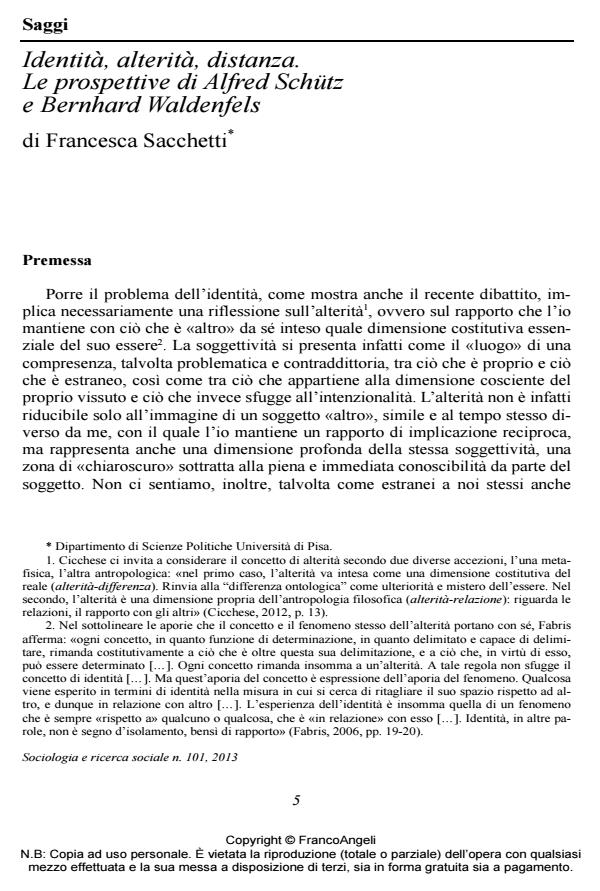Identità, alterità, distanza. Le prospettive di Alfred Schütz e Bernhard Waldenfels
Titolo Rivista SOCIOLOGIA E RICERCA SOCIALE
Autori/Curatori Francesca Sacchetti
Anno di pubblicazione 2014 Fascicolo 2013/101
Lingua Italiano Numero pagine 38 P. 5-42 Dimensione file 748 KB
DOI 10.3280/SR2013-101001
Il DOI è il codice a barre della proprietà intellettuale: per saperne di più
clicca qui
Qui sotto puoi vedere in anteprima la prima pagina di questo articolo.
Se questo articolo ti interessa, lo puoi acquistare (e scaricare in formato pdf) seguendo le facili indicazioni per acquistare il download credit. Acquista Download Credits per scaricare questo Articolo in formato PDF

FrancoAngeli è membro della Publishers International Linking Association, Inc (PILA)associazione indipendente e non profit per facilitare (attraverso i servizi tecnologici implementati da CrossRef.org) l’accesso degli studiosi ai contenuti digitali nelle pubblicazioni professionali e scientifiche
The essay focuses on a relational concept of identity that implies as its essential constitutive moment the confrontation between «self» and «other». Alfred Schütz’s reflection on the theme of social personality revolves around the idea according to which the self presents «from the beginning» a naturally ascribed social dimension: the construction and sharing of a common sense necessarily implies a comparison with the other, in this context understood essentially as alter ego. The idea of «radical otherness» developed by Bernhard Waldenfels indicates that «identity», and «experience» in general, is constitutively marked by a «gray area» not attributable either to the sphere of «self» nor that of «other». The other is configured as a presence-absence which asks the «self» for acknowledgement and acceptance, implying thus a «practical» dimension of our being rooted in the world along with other individuals as the original form of the self-other relationship.
Francesca Sacchetti, Identità, alterità, distanza. Le prospettive di Alfred Schütz e Bernhard Waldenfels in "SOCIOLOGIA E RICERCA SOCIALE " 101/2013, pp 5-42, DOI: 10.3280/SR2013-101001